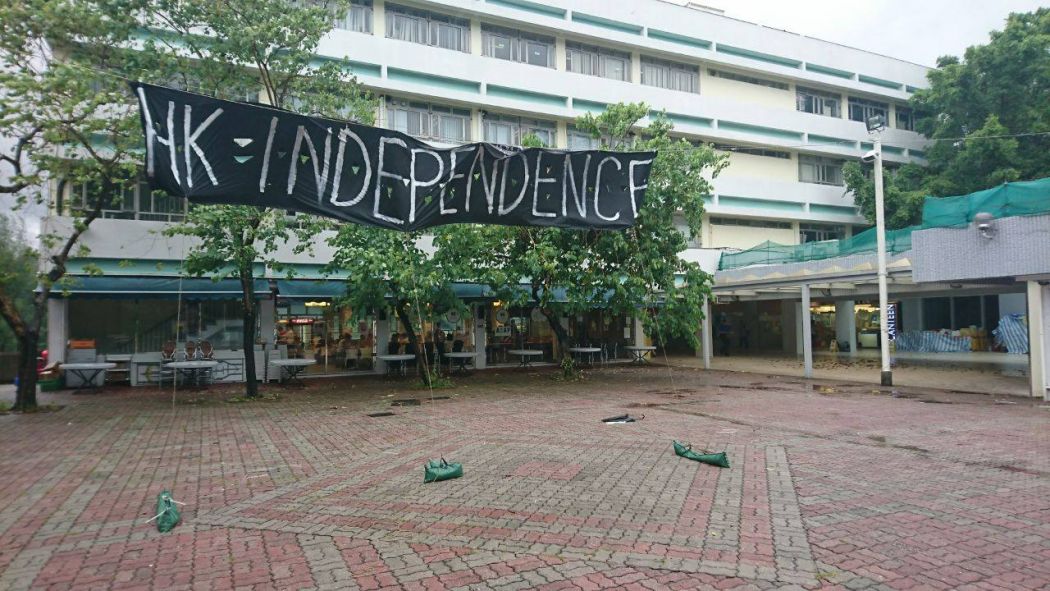Chinese University of Hong Kong (CUHK) has said that it will investigate a student for allegedly using derogatory language – including the word “Chee-na” – during a clash with mainland students over banners advocating independence.
The banners and signs first appeared at CUHK on Monday, but were subsequently taken down by school authorities. The removal led student unions and organisations at other universities to fly similar banners in defence of students’ right to freedom of expression.
Video footage from Thursday shows a group of students attempting to cover existing pro-independence signage with messages such as “#CUSU is not CU” and “Clowns fighting for independence – fucking idiots!” After a representative from the student union told one student that they were not allowed to cover other people’s messages, according to the rules of the Democracy Wall, the student then asked why existing pro-independence posters would be allowed to stay.
A verbal clash then ensued between former CUSU president Ernie Chow and a Putonghua-speaking student. The student said: “I guarantee you will not be able to return to China!” Chow responded with expletives: “Go back to China, Chinese person! Chee-na person! Go back to Chee-na!”
The word “Chee-na” is pronounced similarly to “Shina,” an archaic Japanese name for China that still bears an offensive meaning to many Chinese people.
On Friday, a spokesperson from CUHK said that school authorities had received multiple internal and external complaints regarding a video clip in which a student used derogatory language.
_陸生張貼海報還撃,周竪峰喝罵再掀衝突_* * *..._-_G_2017-09-08_16-58-16.jpg)
“The university strongly condemns the student’s use of a derogatory slur against China to engage malicious personal attacks. The student’s offensive statements are hurtful towards all of those killed during World War II as well as their descendants, and defies the code of ethics and the expectations of society – it is saddening,” they said.
The spokesperson said that the university had already begun the process of investigating the incident, and would treat it with the utmost seriousness.
Chow said on Facebook that he would be “happy” to be the first person in Hong Kong to be convicted of using the word “Chee-na.”
Previously, democratically elected lawmakers Baggio Leung and Yau Wai-ching were ousted from the legislature for failing to solemnly take their oaths, including by using the word “Chee-na.”

According to Article 27 of the Basic Law, Hong Kong residents enjoy freedom of speech and assembly.
On Friday afternoon, representatives from the student union of Chinese University (CUSU) held a protest in the office of the CU Staff-Student Centres Management Committee.
It urged school authorities to stop curtailing students’ free speech and to respect the union’s autonomy in managing facilities, including the Democracy Wall.
Chief Executive Carrie Lam also issued a strongly-worded statement on Friday condemning “improper remarks” used on campus.
